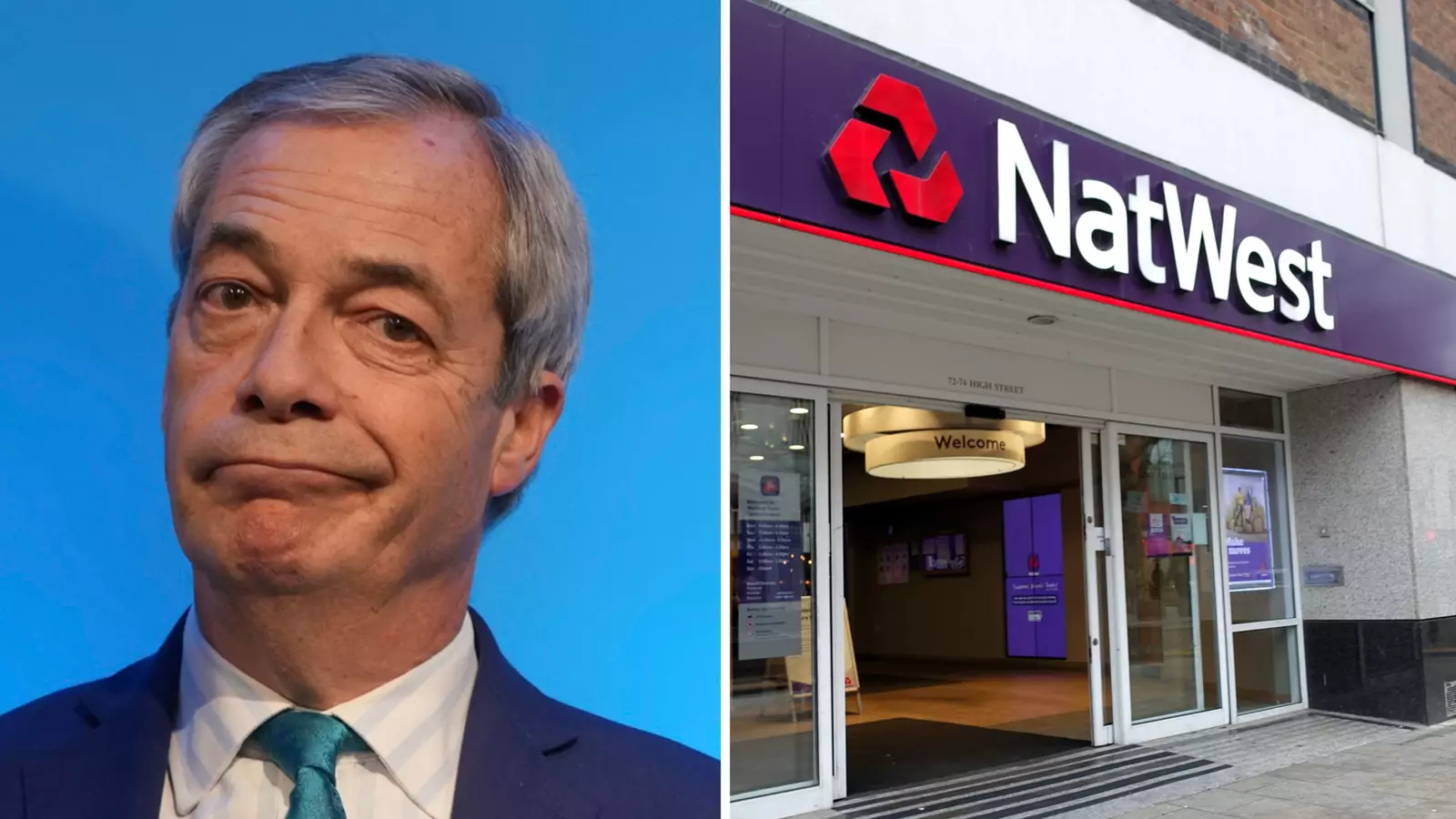In a significant move that underscores the intersection of politics and finance, Nigel Farage, leader of Reform UK, is deliberating bringing private criminal proceedings against NatWest Group in the light of the ongoing debanking controversy. This situation, which caused a seismic shift within the banking giant and resulted in the resignation of its former CEO, Dame Alison Rose, positions Farage at the forefront of both political discourse and legal confrontation.
The debanking incident that sparked this legal inquiry revolves around allegations that NatWest’s Coutts subsidiary closed Farage’s bank accounts for political reasons rather than legitimate commercial interests. Initially, NatWest maintained that the decision was financially motivated. However, internal documents later revealed by Farage suggested that there was indeed a significant political motive behind the bank’s actions. This revelation set off a political storm, leading to growing unrest among top Conservative leaders, including Prime Minister Rishi Sunak, who publicly expressed their loss of faith in Rose’s leadership at the bank.
The issue has broader implications for how banks interact with high-profile clients, especially those labeled as politically exposed persons (PEPs). Following the scandal, there has been a directive from the City watchdog emphasizing fair treatment for PEPs, indicating a growing awareness and concern among regulators about potential biases in banking.
Farage’s decision to recruit Chris Daw KC from Lincoln House Chambers highlights the seriousness with which he is approaching this matter. The legal strategy indicates that Farage and his legal team are keen to explore all avenues, including potential criminal ramifications, to hold NatWest accountable for its actions. Dan Morrison, a partner at Grosvenor Law, pointed directly to the concerns regarding potential criminal issues linked to the bank’s conduct, indicating a strategic pivot that may not just seek financial reparations but also seek legal accountability.
Interestingly, this legal move coincides with a pivotal moment for NatWest, as it prepares to release its annual results, which will be closely scrutinized given the current political climate. Furthermore, the government’s impending sale of its remaining stake in the bank signals a critical transitional phase for both NatWest and the political climate in which it operates. A successful legal challenge against such a significant player in the banking sector could have repercussions that resonate far beyond the courtroom, impacting the reputational standing of the institution.
Farage’s actions not only reflect personal grievances but also highlight his strategic positioning within UK politics. His party, Reform UK, has shown a notable ascent, recently surpassing traditional political rivals such as Labour and the Conservatives in polls. As he seeks to capitalize on this momentum, the legal clash with NatWest presents an opportunity to fortify his role as a prominent political figure.
By taking a stand against a major banking institution, Farage is crafting an image of a politician who is unafraid to challenge established systems, potentially appealing to voters increasingly disillusioned with conventional political establishments. His close ties with international figures, such as Donald Trump, hint at an emboldened approach toward shaping the narrative around national politics as the UK approaches its next general election in 2029.
The stakes in this battle are substantial for both Farage and NatWest. On one side, Farage stands to assert significant claims regarding his reputation and financial damages arising from the debanking action. On the other, NatWest, under the leadership of Paul Thwaite, is enjoying a period of solid financial performance, proving that the institution is not without resilience. Despite this robust financial positioning, the bank’s management now faces the challenge of navigating the legal storm initiated by Farage while maintaining public and investor trust amid potential fallout.
Ultimately, the ongoing saga between Nigel Farage and NatWest encapsulates the tense interplay between politics and the financial sector. The outcome of this dispute could have lasting implications not only for the individuals involved but also for wider discussions about accountability, governance in financial institutions, and the political landscape in the UK as it prepares for its future elections. As this situation develops, the reverberations will be closely monitored by stakeholders across politics and finance alike.


Leave a Reply